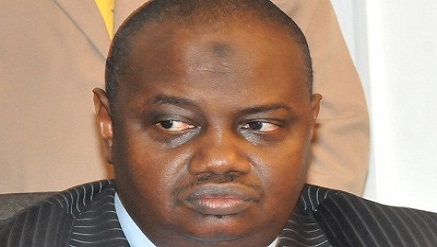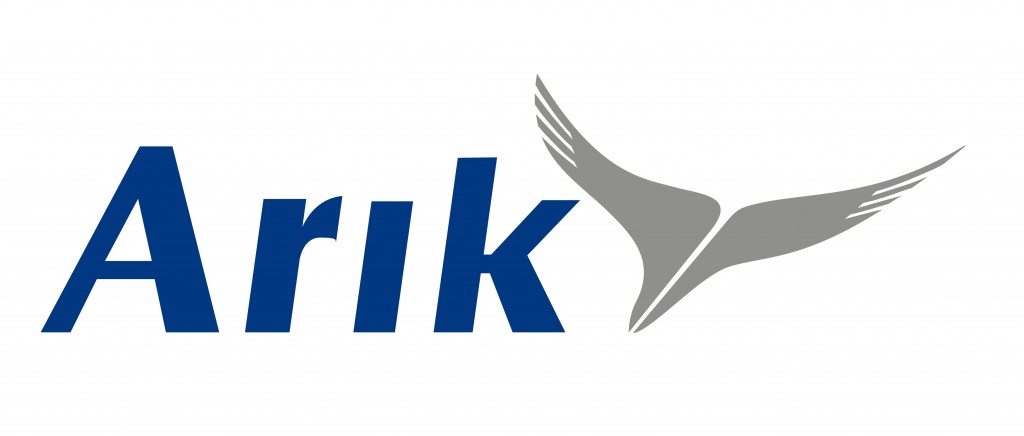News
Fraudsters Steal N5Bn from Govt Account in 3 Minutes

Economic and Financial Crimes Commission (EFCC) is investigating a case of electronic fraud involving an unnamed state government in Nigeria which reportedly lost over N5 billion in three minutes.
According the EFCC, five banks were involved in the case in which 250 bank accounts were used by the yet to be unidentified cyber thieves to defraud the state government.
Mr. Olaolu Adgbeti, director of Operations, EFCC, said that processes used in the fraud include: POS, NIP, ATM, cash withdrawal, fund transfers and NEFT.
Adgbeti, who was represented by Iliyasu Kwarbai, head of Lagos zone at the 5th annual Payment Systems & Fraud Conference 2014 added that “since the adoption of the ePayment system in Nigeria, the Commission is inundated with complaints related to electronic payments frauds. These compliments come from the financial institutions. Current fraud trends that is reported and Ben investigated include: Phishing and spoofing activities targeting local bank customers; Cloning of business websites e.g. banks and merchants; fraudulent online purchases made with fake foreign financial institutions and stolen credit card information.
“Online investment scams targeting local victims who divulge all their confidential information; deployment of malicious programs, mostly key stroke loggers, on target systems. Millions of naira are moved using electronic transfers.
“We are currently investigating a case in a particular case where funds were moved electronically. On the case of investigating the crime, although we are still investigating, but we found that the crime was done between 4:28pm and 4:31pm same day.
“On that day, five banks were involved in the case where 250 bank accounts were used by the yet unidentified cyber criminals. We are making headways.
Agbeti, added that stages EFCC is following to track the crime processes include, “read and digest the petition and map out plan for action. Invite the complainant to give insight into natter by substantiating the allegations”; among other processes before arriving at legal advice for possible prosecution of those found culpable.
He hinted that investigation and prosecution of electronic fraud is made more arduous for the issues like cooperation with the industry in observations of due diligence; current information sharing process by LEAS with financial institutions, ISPs and Telecommunications operators is slow.
The Director also decried that cyber security awareness in the country is still very poor.
“Example-most high level government functionaries still use unsecured channels and free e-mail services for official communication and internet related transactions,” he said.
He added that th risk of fraud being conducted via Internet banking is high and increasing, adding that vulnerabilities are known as reduction measures can be put in place.
News
UK Minister for Africa Visits Nigeria to Deepen Strategic Partnership

The United Kingdom’s Minister for Africa, Lord Collins of Highbury, has concluded a three-day visit to Nigeria, aimed at reinforcing the UK-Nigeria Strategic Partnership.

He reaffirmed the UK Government’s strong commitment to deepening trade and investment ties between the United Kingdom and Nigeria.
During his visit, Lord Collins met with senior Nigerian government officials, business leaders, civil society representatives and United Nations agencies.
These engagements underlined the UK’s long-term drive to support Nigeria’s prosperity and stability while deepening bilateral cooperation for transformative growth across our shared priorities.
A key highlight of the visit was Lord Collin’s bilateral meeting with Nigeria’s Minister of Foreign Affairs, Yusuf Tuggar, in which both parties reaffirmed their unwavering commitment to strengthening economic ties and promoting regional security. The Minister was joined by the UK’s Trade Envoy to Nigeria, Florence Eshalomi MP.
Lord Collins also met with Deputy Speaker of the House of Representatives, Hon. Benjamin Kalu, and discussions focused on opportunities to strengthen engagement between UK’s parliament and Nigeria’s National Assembly and the importance of furthering women’s participation in politics.
Speaking on his visit, the UK Government’s Minister for Africa, Lord Collins said: “Nigeria and the UK share a rich, ambitious relationship: one that is deeply rooted in respect.
“Our Strategic Partnership is at the forefront of this, and my visit has focused on how our countries can continue deepening our cooperation on key issues such as trade and investment to drive economic growth and deliver prosperity for us all.”
The Minister held discussions with United Nations representatives on the ongoing reform of the UN system, its implications for Nigeria and how the reform can effectively support those most in need, particularly in Northeast Nigeria, whilst also contributing to global humanitarian efforts.
Lord Collins also met with civil society leaders to discuss electoral integrity and governance reforms, reinforcing the UK’s commitment to democratic values and community empowerment.
He later visited Nigeria’s Anti-Kidnap Fusion Cell: a key security initiative supported by UK expertise through the National Crime Agency and the Integrated Security Fund, which plays a vital role in enhancing local safety and combating serious crime.
Also commenting on the visit, the British High Commissioner to Nigeria, Dr Richard Montgomery, said: “Driving growth is central to the UK’s foreign and development policy. Lord Collins’ visit to Nigeria underscores the UK’s unwavering commitment to deepening our shared prosperity through expanded trade and investment. We are proud to stand alongside Nigeria as it forges a resilient and dynamic economy.”
This visit underscores the UK’s enduring partnership with Nigeria – built on mutual respect, shared goals, and a vision for a prosperous future for both nations.
News
PalmPay Launches CSR Initiatives to Empower Women, Foster Financial Literacy in Northern Nigeria

In a strategic move to expand financial inclusion in Nigeria, leading mobile banking platform, PalmPay has launched a series of CSR programs across Kano and Kaduna. The CSR initiative named “Passing the Baton” represents the brand’s commitment to passing on knowledge and providing the resources individuals and businesses need to achieve financial independence and drive economic empowerment.

This initiative is a bold move by PalmPay to bridge the opportunity gap in the North by providing financial literacy training and micro-business branding support to 5,000 women-owned businesses in Kano and Kaduna. This strategic initiative reaffirms PalmPay’s commitment to inclusive development and economic empowerment, particularly in underserved regions.
“At PalmPay, we believe that real financial inclusion must be far reaching and cover the grassroots,” said Chika Nwosu, Managing Director of PalmPay. “Our new CSR program is focused on supporting gender equity by equipping women with the knowledge, tools, and visibility they need to thrive as entrepreneurs in their communities.”
Through this initiative, beneficiaries will receive free health insurance, hands-on training workshops, enhanced store branding to boost visibility, and branded merchandise to strengthen their business presence.
The initiative is part of PalmPay’s broader strategy to extend its innovative solutions, expand its footprint in Northern Nigeria, while building sustainable partnerships with local stakeholders for long-term impact.
In a show of support, His Royal Highness, the Emir of Kano, Dr. Muhammadu Sanusi II, has endorsed the initiative, calling on other stakeholders to join forces with PalmPay in ensuring the North benefits fully from the growing digital economy. PalmPay has received commendation from community stakeholders, as the initiative aims to serve as a model for similar projects across other northern states.
As PalmPay continues to scale across Nigeria, the company remains committed to bridging the financial inclusion gap and empowering underserved groups, particularly women and youth, through its innovative solutions and impact initiatives.
News
EFCC Witness Admits Writing Off Arik Air’s $2.3M Debt Amid N76Bn Fraud Trial



 Telecom3 days ago
Telecom3 days agoMTN Nigeria Invests ₦900Bn in 2025 to Boost Network Quality in Lagos & Abuja

 E-Business3 days ago
E-Business3 days agoFirm Reports a 48% Increase in Malicious Packages Threatening Software Supply Chains

 News3 days ago
News3 days agoEFCC Witness Admits Writing Off Arik Air’s $2.3M Debt Amid N76Bn Fraud Trial

 Telecom3 days ago
Telecom3 days agoMTN Nigeria Wins Award for Best Use of Data @MarkHack 4.0 Awards Night

 Telecom2 days ago
Telecom2 days agoGlo, Huawei, Communications Ministry Bring Digital Services to Abuja Village

 News3 days ago
News3 days agoSERAP Urges National Assembly to Reject Tinubu’s $24Bn Loan Request Over Debt Concerns

 E-Financial3 days ago
E-Financial3 days agoSenate Passes Harmonised Report on Tax Reform Bills

 E-Financial2 days ago
E-Financial2 days agoSEC Alerts Public on Silverkuun, Trending Dubious Investment Schemes


























